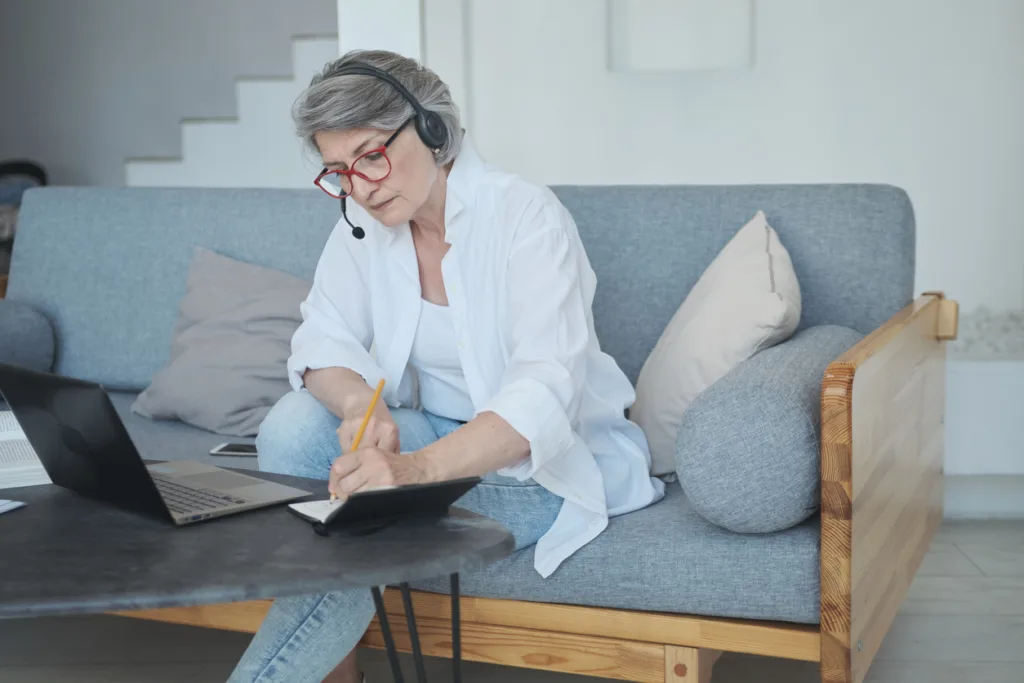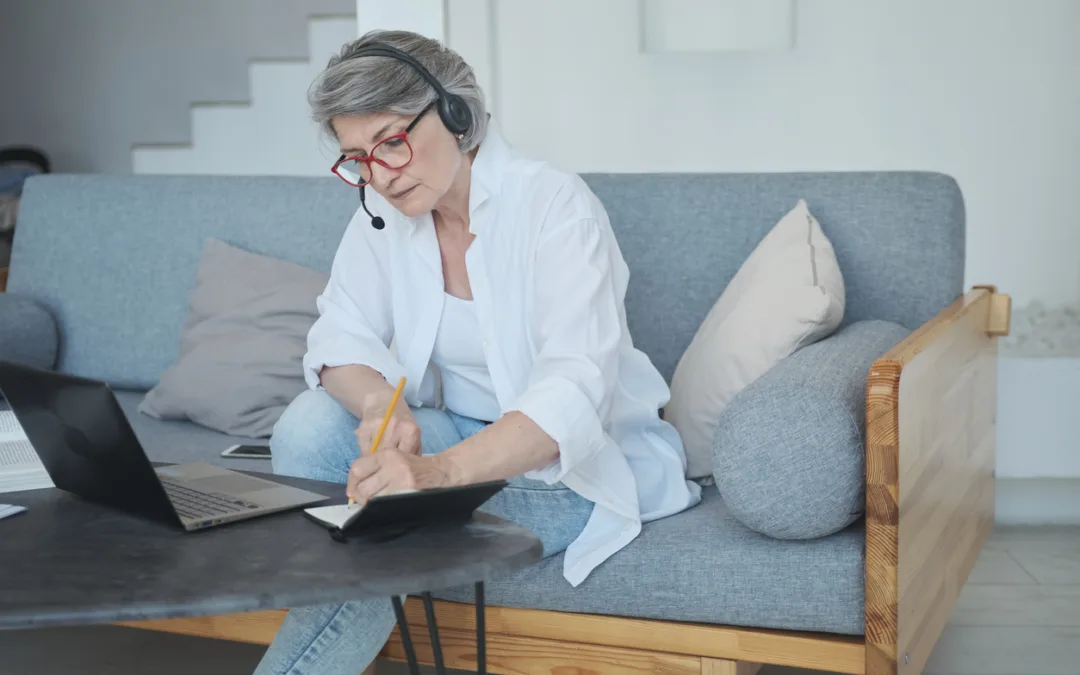
Managing a self-funded retirement
Three things you need to know
There are many misconceptions about self-funded retirees. One of the main problems is that this income status tends to become conflated with the popular media myth of ‘greedy, rich baby boomers’. Not all retirees are baby boomers. Most are not ‘rich’. And like the rest of the human race, a tiny per cent may or may not be greedy.
Being self-funded is really quite a narrow definition. It means that you are not eligible for an Age Pension or have forgotten/decided not to apply.
If you are ineligible, it does not mean you are overly wealthy. You may be single, live in a home below the median value of houses in your suburb, but have just over the asset threshold of $656,500 which means you need to live off your own income. If we assumed this to be a net amount of $39,500 for the past year (based upon a 6% return), then it hardly translates to a luxury lifestyle.
Overall, self-funded retirees comprise about 30% of all retirees. Our experience in dealing with these older Australians has revealed three fundamentals which we believe to be worth sharing.
The main factor underlying each of the following points is that managing your income is very similar to those on a full or part-Age Pension. It is never a set and forget proposition. The rules, the goal posts – and some might even say, the umpiring – are changing frequently. It is up to you, as captain of your own ‘money team, to remain vigilant and nimble and informed.
Here’s our top three tips.
Your status will probably change – as will your source of income
Most people who commence their retirement self-funded will end up on at least a part-Age Pension at some point in their lives. Whilst about 30% of retirees start with a private income, this shrinks to 20% by the time they reach their 80s. This is because they have generally drawn down enough of their super or other investments to fall below the asset or income thresholds and then will qualify. This is a fact worth mentioning as those who are self-funded should keep an eye on their potential eligibility and apply for an Age Pension as soon as it is feasible. Centrelink won’t backpay you because you applied later than you needed to. You can easily keep track of your potential eligibility by checking our free Age Pension Eligibility Calculator at any time. Those who still do not qualify for an Age Pension will most likely be able to receive a Commonwealth Seniors Health Card (CSHC) instead. This same calculator will help you determine your status if this is the case.
The rules matter
Whether on a Centrelink payment or not, knowing the rules that guide your retirement income is essential. Yes, there are so many rules. And yes, they can be confusing, complex, sometimes even seem contradictory. We are not suggesting that you enroll in a finance degree in order to keep up. What we do believe, is that it is important for you to understand at least as much as is legally appropriate. And to seek advice on the finer detail when necessary. For instance, should you have a Self-Managed Super Fund (SMSF), the regulations are very stringent. You will probably be a director or a trustee for this fund, in which case your obligations are clearly spelt out and must be followed. It’s your job to know them and observe them and to seek support to do so when necessary. Put simply, Self-Managed Super Funds are not for the faint hearted. Another instance where there can be a lack of understanding of rules and reporting for self-funded retirees is when it comes to income streams. Says Steven Sadler, Head of our Customer Services Team,
‘We are forever encountering SMSF owners who strongly believe “I don’t have an income stream or Account-Based Pension, I just have an account that I make the minimum required drawdown from each year” or similarly “It’s not a pension account because I just take one lump sum withdrawal of minimum amount required.” We spend a lot of time explaining that this is not the case.’
This view of income streams is just incorrect and means that the information offered by these retirees may ultimately cost them money. Knowing how superannuation works and what constitutes an income stream is a foundation of your understanding of retirement income. If you are not sure of this aspect of your savings, seeking guidance through an Understanding more about super consultation is a quick and easy starting point.
Options, options, options
And you have so many. Just as your status may change from self-funded to receiving an Age Pension entitlement, so do the many ways you can contribute to and draw down from your savings. It’s all too easy to think you have a certain nest egg and that you can set up an income stream, and if you don’t draw it down too quickly, you can live off this money for the foreseeable future. But that is an extremely passive – and potentially costly – strategy. There are a wide range of options available for those who are self-funded to actively manage their savings and use the rules to maximise this money. These include rules on contributions (Carry Forward, Bring Forward, Younger Partner), on home equity contributions (Downsizer) on gifting (as you move towards Age Pension eligibility) and on taxation. Again, you don’t necessarily need to be aware of all the detail. But it is important to know that, for instance, a couple might be able to ‘upsize’ their super by about $600,000 if they are selling the family home.
The major takeout from our three important reminders is that you will do yourself (and others) a great favour if you know about the range of options and opportunities open to those who are self-funded retirees. Just don’t be afraid to seek guidance if and when needed.
Next steps
How long will your money last? And how can you make it last longer? A guided advice consultation using the Retirement Essentials Retirement Forecaster is a great start to learning about the many ways of stretching your savings
You may not be receiving an Age Pension, but you almost certainly can get a Commonwealth Seniors Health Card – find out more here or you can seek help with your application.
If you feel your understanding of how super works and how it can work better for you is insufficient, a tailored Understanding more about super consultation will be useful.
What’s your view?
Do you agree with these three fundamental points? Or are there others you feel that self-funded retirees would benefit from? We’d love to learn from your experience.






Hi, yes I agree, but one main point that working people and the government needs to remember is that self funded retires do not get hand outs like most other Australians do. It is so unfair. It costs the same to live as anyone else yet we get no help. In fact we are getting poorer a lot quicker now due to the cost of living.
I Agree with Allan. I am happy to be a self funded retiree as that is what I worked all my life for-not to be a burden on society.
However, I don’t think it’s fair that I am completely overlooked by the tax system that I greatly supplemented over the last 50 years. I am not looking for a pension per se, but I don’t see why I shouldn’t benefit from the same rebates that would ease my cost of living expenses eg motor vehicle reg/ins, utilities, rates etc.
All I have access to is the CSHC.
I agree totally with Allan and Karen. Further, with rising living costs, self funded retirees are approaching eligibility for the Aged Pension at a faster rate. Remember, self funded retirees sacrificed a proportion of their income during their working years so that they could have a better lifestyle. It is very disappointing to see that this is quickly turning into an illusion. The majority of self funded retirees are not rich. We have just been responsible for our own retirement incomes.
We got a discount on Council Rates, Water Rates and electricity by registering our CSHC with each of these organisations. We are in Western Australia.
That’s great but it does not apply the same in every state. I am building a so called “downsizer” house which is not less expensive than 10 years ago, in fact it’s much higher. I have decided to live in this as an “investment” principle place of residence and will ensure my remaining assets come in below the threshold allowed. Then at aged 75, I will claim a few benefits not allowed now.
The system is unfair. I think as a worker from the time I was 18 working in shops to last year- now retired at 70 teaching for 40 years we should receive a universal pension as our New Zealand retired neighbours do. This is fair and acknowledges the 50+ years we have paid taxes.
I totally agree Charmaine.
Totally agree with you Karen, every little saving is a god send. I worked till I turned 70 and was late to the superanuation scheme and now suffer
As a single self funded retiree in my own home with medical insurance , it would really help me remain this way in the future if I had the benefit of cheaper rego’ , rates and other benefits aged pension holders receive. With all the rising costs I may have to become a pensioner which ultimately will be more expensive for the government. I want to stay in my own home but even rates in my area went up by a full third not to mention insurance for it. Where as my income is down by 20percent.
we live in a country where you are punished for being a good citizen and rewarded for being a bad one.
Hugh Miller is spot on. People who have worked hard, saved diligently, spent wisely and are self-supporting are left to their own devices with little or no help from Government. In fact, one small example is when we do the right thing and take out home insurance we pay a tax called ESL (Emergency Services Levy) this is on top of GST and Stamp Duty. Emergency services are available to everyone, but we are subsidising those on welfare or those that don’t do the right thing and don’t insure etc. Those who haven’t worked hard, saved etc. are rewarded with Centrelink payments, public housing, medical and pharmaceutical discounts, public transport and utility discounts etc. I don’t have an issue with a worker who gets retrenched applying for welfare because I know they genuinely will look for work and we need to support those who fall on bad time, but to support the systemic generational dole bludgers is plain wrong!! We the tax payers who support ourselves after retirement need a bit of government support as a reward for what we have done in the past and the present i.e. not being a burden on society!!!!
I believe pension should be universal like NZ
The thing I find really annoying is the assets limits for the aged pension. People who are renting are able to have considerably greater assets before they lose the pension. The assumption is that they have the extra burden of paying rent, however, the government seems to have totally ignored the fact that owners have to maintain their property which renters don’t have to do. Further, the cost of that maintenance increases as you get older because you have to pay others to do the things that you were able to do when you were younger such as cleaning gutters, mowing the lawn, painting the house, moving furniture. The list goes on. Recently I have had to have my roof repaired which costed over seven thousand dollars.
I totally agree really annoys me I have worked so hard and my friends who have a health card brag about having one and yet my wife’s medications cost hundreds of dollars and other people get then for bugger all. It really annoys me. New Zealand Europe Canada you get a pension and benefits if you have paid taxes no matter your assets. Discrimination that’s why I am fed up with all these government departments that have stupid amounts of money thrown at them. I am truly over it.
Nicola is absolutely correct Also had roof work done as a SFR ,paying what I feel was expensive with relation to a few years back when even though structural I would have jumped up there and done it myself–much unfairness in fiscal outcomes -state land tax being one of the worse relating to where you live as to where you invest. I mention this as it is a income source for a large number of SFR . Hastening the time these persons will become pensioners